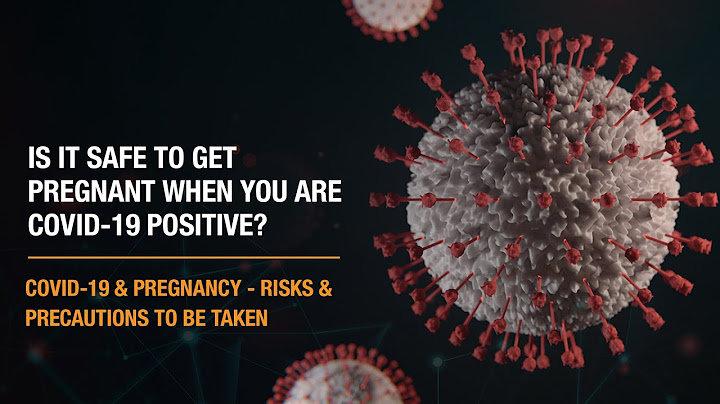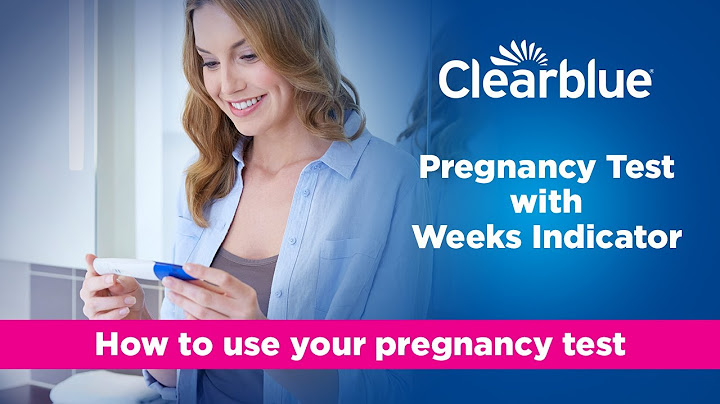When a fertilized egg attaches to the wall of the uterus, where it can begin growing, some light spotting may occur. This is called implantation bleeding, and it can be one of the earliest clues that you are pregnant. Some women don’t experience this type of bleeding, and some simply don’t notice it. If it happens, it doesn’t indicate a problem with your pregnancy. If you’re wondering if you might be pregnant, take our Am I Pregnant? quiz for a little fun and grab a home pregnancy test. Show
Is It Implantation Bleeding or My Period?It’s possible to mistake implantation bleeding for a very light and early period at first. However, there are some differences to pay attention to. Although every woman’s period is different, it’s still possible to guess that it's implantation bleeding by the color and amount of bleeding, and by where you are in your menstrual cycle, as well as by looking out for other early signs of pregnancy — more frequent bathroom trips, fatigue, and nausea (i.e., morning sickness). These are the main signs and symptoms of implantation bleeding compared to a period:
When Does Implantation Bleeding Happen?You may notice implantation bleeding around 10 to 14 days after conception, when a fertilized egg becomes attached to the lining of your uterus. Keep in mind that conception may not occur on the same day you had sex. Sperm can live as long as five days inside a woman’s reproductive tract, and conception might not occur for several days after sex. Should I Take a Pregnancy Test During Implantation Bleeding?You can take a home pregnancy test during implantation bleeding. Keep in mind that the pregnancy hormone human chorionic gonadotropin (or hCG) that pregnancy tests detect only starts being produced in your body the moment the fertilized egg is implanted in the uterus — which is the trigger for implantation bleeding. The earlier you take the test, the less hCG there is to detect, meaning that the test may not yet be accurate. If you have the patience to wait, you’ll get a more accurate test result if you wait until after the first day of your missed period. If you get a positive test result, schedule an appointment with your healthcare provider to confirm your pregnancy. And you can get an estimate of when to expect your baby by using our handy tool to calculate your due date. Should I See a Doctor?Implantation bleeding is generally nothing to be concerned about, but it’s a good idea to talk to your healthcare provider about any bleeding you experience during pregnancy. Although light bleeding in early pregnancy can be totally normal, there are some reasons for bleeding in early pregnancy that need to be addressed immediately. These can include infection, miscarriage, or ectopic pregnancy. So there’s a chance you could be pregnant, but you want to take a test to be sure. But how soon after implantation can you test?  Implantation is a key moment in your pregnancy journey. The fertilized egg (now technically called a “blastocyst”) has traveled down your fallopian tube and attached itself to the wall of your uterus, preparing to grow into a baby. But how can I know that implantation has happened? you ask. And how soon after implantation can I test for pregnancy? Let’s find out. In this article 📝
When does implantation happen?So, we know what happens at implantation—but when does it happen? Well, every woman is different, but it typically takes a fertilized egg about 6 to 12 days to make it to your uterus and implant. If we imagine, then, that you ovulate on day 14 of your menstrual cycle (which is about average for a 28-day cycle), and the egg is fertilized within 24 hours, implantation could take place between days 20 and 26. Quite a wide time frame! How can you know that implantation has happened?There are a few possible implantation symptoms that could give you a clue that the fertilized egg has set up home successfully. For example, you might have some implantation bleeding. This looks like the kind of light spotting you may get at the beginning or end of your period and can be pinkish or brown in color. It might also be quite watery if it’s mixed with vaginal discharge. Other potential symptoms of implantation include:
Side note: If any of these symptoms sound familiar, that might be because they’re also common signs that your period is about to start. That can make identifying true implantation symptoms a little tricky (especially considering that implantation can happen right around the time you’re expecting your period). Implantation can also happen without giving you any odd symptoms—a missed period might be the first sign that anything has changed. How soon after implantation can I test?It’s totally understandable if you’re impatient to take a pregnancy test after implantation bleeding (or any other symptom that’s making you suspicious). But when’s the best time to take a test? To answer that, we first need to talk about how pregnancy tests work. Both a home pregnancy test (of the pee-on-a-stick variety) and a blood test at your doctor’s office work by detecting a hormone called human chorionic gonadotropin (hCG). Your body starts to produce hCG soon after implantation, and a pregnancy test will pick up on this once levels of the hormone are high enough. How quickly after implantation does hCG rise?Your hCG levels start to rise right after implantation, and they should double about every 48 to 72 hours in the first four weeks of pregnancy. How many days after implantation can you test?When to test after implantation bleeding or another symptom depends on the type of pregnancy test. A blood pregnancy test is more sensitive, so it may be able to detect hCG about six to eight days after conception—in other words, very soon after implantation. A home pregnancy test, though, might only detect hCG about 10 days after conception—maybe four days or so after implantation. But for the highest chance of an accurate result (rather than a false negative), it’s best to leave taking a home pregnancy test until at least the day after your missed period. Yep, even if you’ve noticed implantation symptoms. (We know—waiting is hard!) ➡️ You might also be interested in: 5 Tips for Surviving the Two-Week Wait Other FAQs about how soon after implantation can I test?How early after implantation can you test positive?As we discovered above, it depends on the kind of pregnancy test you take. A blood test might be able to detect hCG for a positive result very soon after implantation. On the other hand, you might need to let your hCG levels build up for a few more days after you’ve spotted implantation bleeding to give a home pregnancy test a better chance of an accurate result. What if I have implantation bleeding but a negative test?It’s possible that either:
That said, if you ever notice any abnormal vaginal bleeding or any bleeding in early pregnancy, it’s a good idea to check in with your healthcare provider. And if you ever need a compassionate ear on your TTC journey, the Peanut Community is here for you. How long should I wait to test after implantation bleeding?About four to five days after implantation bleeding, HCG levels in the body reach detectable levels in the blood. For at-home urine pregnancy tests, it may take up to 7 days for HCG levels in the urine to reach detectable levels for testing.
How long after implantation does a test become positive?If you are pregnant, your body needs time to develop detectable levels of HCG. This typically takes seven to 12 days after successful implantation of an egg. You may receive an inaccurate result if the test is taken too early in your cycle.
|

Related Posts
Advertising
LATEST NEWS
Advertising
Populer
Advertising
About

Copyright © 2024 en.idkuu.com Inc.

















